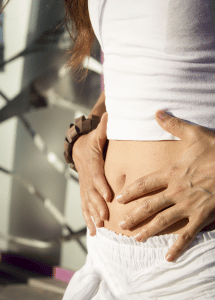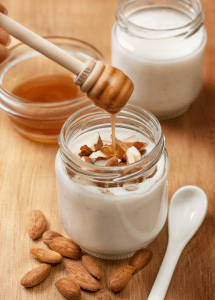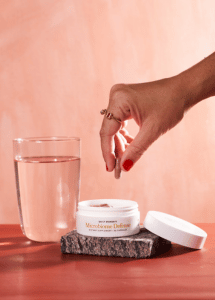What Is the Vaginal Microbiome, and How Can I Support It?

 You have probably heard about the gut microbiome, the organisms in your gut that play a key role in health including digestion, absorption, nutrient synthesis, metabolism, immune regulation, and mood. But did you know that you also have an entire microbiome in your vagina? A healthy vaginal microbiome is associated with better vaginal immunity, a more balanced inflammatory response and healthy fertility. [3][4][5][6] Many years ago, we thought that to improve the balance of vaginal microbiome, we had to use things like suppositories. However, research suggests that there is actually a strong connection between the gut microbiome and the vaginal microbiome, thus the use of oral probiotics and other strategies can both support the health of the digestive system and improve the balance of the vaginal microbiota!
You have probably heard about the gut microbiome, the organisms in your gut that play a key role in health including digestion, absorption, nutrient synthesis, metabolism, immune regulation, and mood. But did you know that you also have an entire microbiome in your vagina? A healthy vaginal microbiome is associated with better vaginal immunity, a more balanced inflammatory response and healthy fertility. [3][4][5][6] Many years ago, we thought that to improve the balance of vaginal microbiome, we had to use things like suppositories. However, research suggests that there is actually a strong connection between the gut microbiome and the vaginal microbiome, thus the use of oral probiotics and other strategies can both support the health of the digestive system and improve the balance of the vaginal microbiota!
Because they are connected, the gut microbiome can impact the vaginal microbiome in several ways:
- The gut microbiome can act as a reservoir for organisms that can influence the vaginal microbiome. [1][3][4]
- Poor gut health can cause overall inflammation in the body, including in the vagina. [1]
- The gut microbiome can influence the levels of hormones, like estrogen, which can have an effect on the vaginal microbiome. [1]
Because it’s true that pathogens from the gut can travel into the vagina and contribute to vaginal dysbiosis [3][4], we can use this relationship to promote health and balance. Some things that can contribute a positive benefit include diet, lifestyle factors, and the use of supplemental probiotics.
Some things to consider…
Diet
 Dietary factors that benefit both the GI and vaginal microbiome include:
Dietary factors that benefit both the GI and vaginal microbiome include:
- Reducing refined sugars and processed foods in your diet.
- Including fermented foods like sauerkraut, kombucha, yogurt, and miso in your diet.
- Eating a good variety of foods that have prebiotic fiber (the food for your microbiome); some examples are onions, asparagus, bananas, oats, cocoa, and blueberries. You can also boost your intake with our Daily Nutri-Greens!
Lifestyle
Some measures you can take to promote the health of your vaginal microbiome include:
- Minimizing the use of medications that alter your microbiome like antacids, PPIs and antibiotics. If you need to take these for your health, definitely don’t stop, but talk to your doctor about what you can do (like taking probiotics) to maintain balance.
- Don’t douche! Douching washes away the natural good bacteria in your vagina and creates more imbalance.
- Be mindful of tight clothes. Clothes that bind too tightly can increase irritation, heat, and moisture that allow less healthy bacteria to thrive.
- Remember how your mom said wipe front to back, not back to front… while some bacteria naturally and helpfully migrate from the rectum to the vagina, too much can be a problem. Bonus points if you own/use a bidet!
Supplemental Probiotics
 Some studies suggest that oral administration of probiotics allows the migration of probiotic microorganisms from the intestine to the vagina where they may exert their benefits for vaginal health. [3] The predominant bacteria in the vagina are lactobacillus species; these organisms create lactic acid, which is extremely important for maintaining a healthy, acidic pH in the vagina. Some of the strains that are best supported for maintaining a healthy vaginal microbiome include Lactobacillus plantarum, Lactobacillus rhamnosus, Lactobacillus paracasei, and Lactobacillus casei.Bifidobacterium lactis is also present in both the gut and the vagina, and produces lactic acid for pH balance. This bacteria works synergistically with the lactobacillus to discourage the overgrowth of unwanted bacteria and help to maintain vaginal balance.
Some studies suggest that oral administration of probiotics allows the migration of probiotic microorganisms from the intestine to the vagina where they may exert their benefits for vaginal health. [3] The predominant bacteria in the vagina are lactobacillus species; these organisms create lactic acid, which is extremely important for maintaining a healthy, acidic pH in the vagina. Some of the strains that are best supported for maintaining a healthy vaginal microbiome include Lactobacillus plantarum, Lactobacillus rhamnosus, Lactobacillus paracasei, and Lactobacillus casei.Bifidobacterium lactis is also present in both the gut and the vagina, and produces lactic acid for pH balance. This bacteria works synergistically with the lactobacillus to discourage the overgrowth of unwanted bacteria and help to maintain vaginal balance.
As a woman, vaginal health is important throughout your life. The use of diet, lifestyle, and probiotics can provide a powerful strategy for supporting this critical area!
References:
[1] https://www.evvy.com/blog/gut-bv-yeast-connection
[2] https://www.ncbi.nlm.nih.gov/pmc/articles/PMC7511578/
[3] https://www.gutmicrobiotaforhealth.com/what-happens-in-the-gut-can-have-an-impact-on-the-vaginal-microbiota-now-scientists-understand-why/
[4] https://bioinst.com/en/intestinal-and-vaginal-microbiome-analysis/
[5] https://www.fertile-gut.com/blogs/news/your-gut-vaginal-microbiota-connection
[6] https://www.yourdaye.com/vitals/womens-health/link-between-your-bowels-and-vaginal-microbiome/